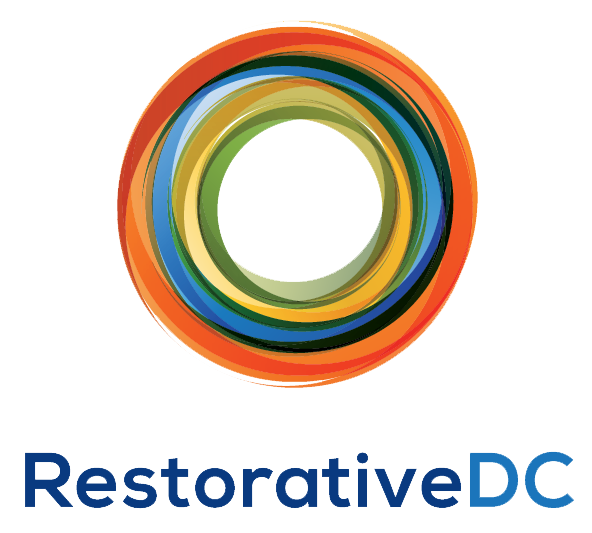Restorative Conversations
Conversation skills focused on communicating feelings, needs, and actions in the spirit of curiosity, care, and compassion. Drawing on Nonviolent Communication and conflict management techniques, these approaches to difficult conversations are guided by reflective listening and avoiding blame language.
Restorative Justice Conferencing
A responsive dialogue process, facilitated by a trained facilitator, and used to resolve incidents of harm, including as participants all involved and affected by the incident or incidents. Restorative Conferences provide a safe and structured space for participants to understand what happened, express how they have been affected, and create a written agreement to repair the harm and prevent the incident from happening again. Agreements are monitored through compliance and the process is most often used as an alternative to exclusionary disciplinary responses. Similar in format to Community Conferencing and Family Group Conferencing.
Classroom Circles
Circles in the classroom can be used for community-building, instruction, collective problem solving, and even conflict resolution. The circle offers an opportunity for youth to take an active role in creating a safe and supportive space in their own classroom. The circle gives equal opportunity for all to listen, contribute, and practice social emotional skills.
Dialogue Circles
These are dialogues facilitated in the model of the Peacemaking Circle, not in response to conflict. Typically recurring, and focused on a particular group, or topic. Dialogue Circles incorporate the use of a talking piece, discussion of values, and sharing of personal narratives.
Reintegration Circles
When youth are returning from exclusion from the school community, a Reintegration Circle provides an opportunity for the young person, their personal support network, and the school to create a positive connection to welcome the student back. Using the Peacemaking Circle process, the conversation revolves around what supports the student will be offered and what commitments the student and all included will make to ensure the youth’s success.
Restorative Circles
A responsive dialogue process facilitated by a trained circle keeper, and used to resolve incidents of harm, including as participants all involved and affected by the incident or incidents. A talking piece, discussion of values, and personal narrative are distinctive features of this process. Restorative Circles provide a safe and structured space for participants to understand what happened, express how they have been affected, and create a written agreement to repair the harm and prevent the incident from happening again. Agreements are monitored through compliance and the process is most often used as an alternative to exclusionary disciplinary responses.
